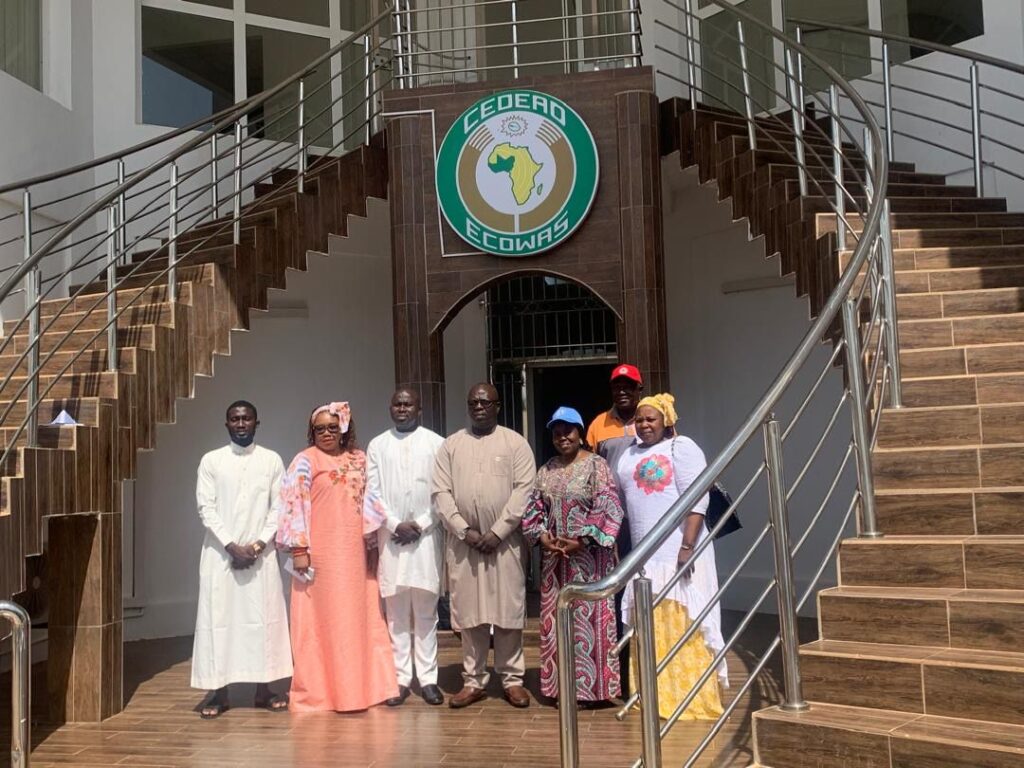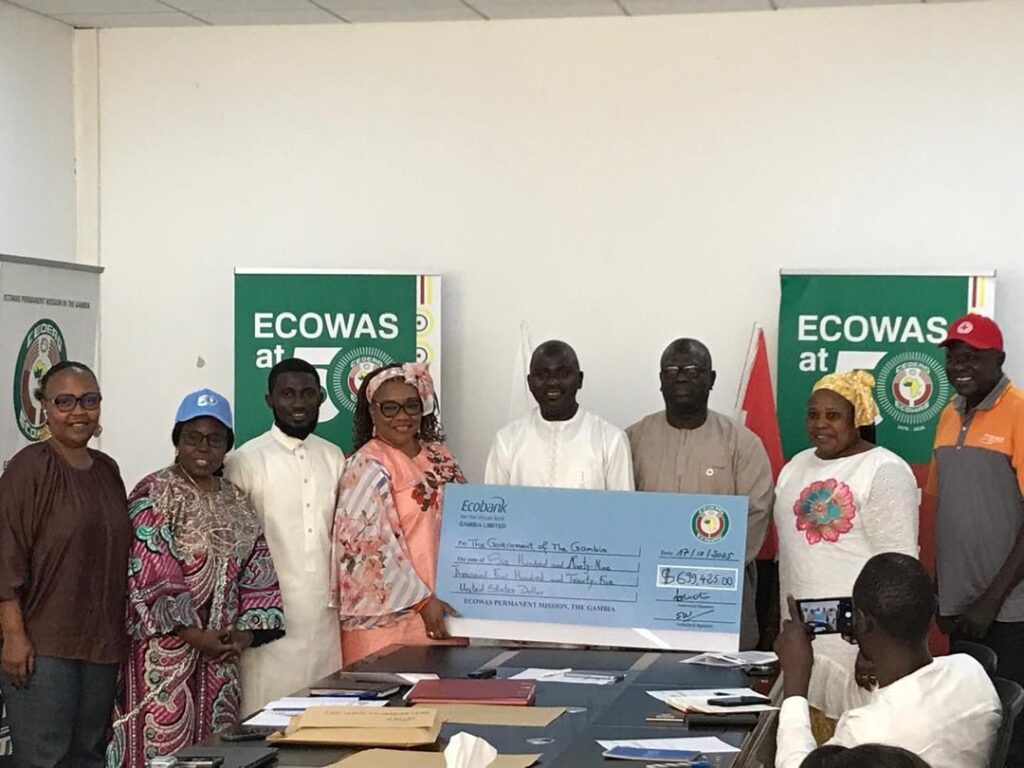ECOWAS, Gambia Government, and Red Cross Launch $699,425.Relief Pact for Refugees, IDPs and Host Communities.
By Raymond Enoch
The Government of The Gambia, in partnership with the Economic Community of West African States (ECOWAS), the Gambian Government and the Red Cross Society, has signed a landmark Project Cooperation Agreement aimed at supporting some of the most vulnerable populations in the country. The signing took place on October 17, 2025, in Banjul and marks a significant step in regional efforts to provide targeted humanitarian assistance.

The agreement, valued at US$699,425., will fund a six-month initiative designed to benefit more than 2,100 individuals across all seven regions of The Gambia. Beneficiaries include internally displaced persons (IDPs), refugees, returnees, stateless individuals, asylum seekers, and members of host communities impacted by migration and displacement.
The project is funded by the ECOWAS Humanitarian Department and will be implemented by the Gambia Red Cross Society in collaboration with national stakeholders. According to project documents, the intervention is designed to provide both emergency relief and sustainable development support to affected populations.

Key components of the initiative include direct cash assistance to vulnerable households to meet their immediate needs, the construction of solar-powered boreholes to improve access to clean and safe drinking water, and the establishment of community gardens in the Foni region to enhance local food production and strengthen food security.
Officials from ECOWAS noted that the initiative forms part of the bloc’s broader strategy to promote human security and resilience across West Africa, particularly in areas facing increased displacement due to conflict, environmental stress, and socio-economic instability. They stressed that the project reinforces the commitment of ECOWAS to stand with its member states and communities during times of crisis.
The Gambian government praised the agreement as timely and aligned with its national humanitarian agenda. A government spokesperson expressed optimism that the program would alleviate hardship for thousands of vulnerable individuals while fostering cooperation between state institutions, civil society, and regional bodies.
The Gambia Red Cross Society, which will lead on-the-ground implementation, emphasized the importance of community engagement, transparency, and timely delivery of services. According to a senior official, the organization is fully prepared to ensure that the resources reach those who need them most and to monitor the impact of the intervention throughout the project’s duration.
Implementation is expected to commence immediately, with joint monitoring mechanisms established to assess progress and ensure accountability. If successful, the initiative could serve as a scalable model for humanitarian response in other ECOWAS member states facing similar challenges.









